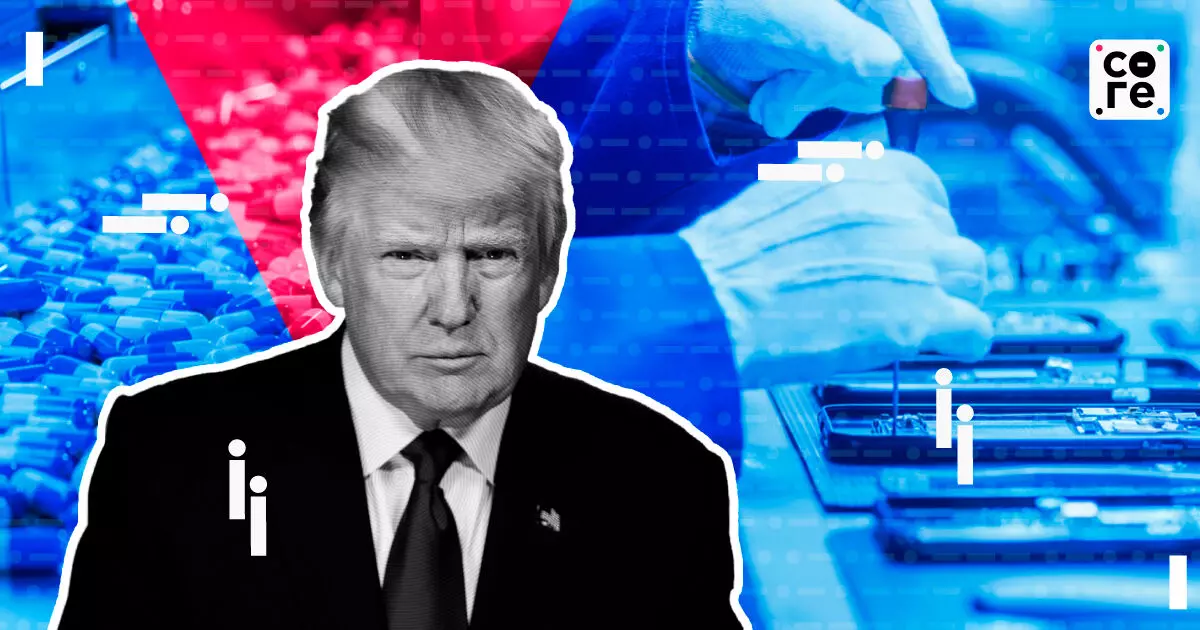
Trusting Politicians Like Trump With Global Trade Order Can Be Catastrophic
US president Donald Trump’s current stint at the White House started with grand promises of moving the manufacturing of everything back to America. But the ripple effects of the uncertainty that the trade wars triggered will trickle down.

Two weeks ago, the White House insisted that all the beautiful iPhones would be made in the US, and millions of jobs would be created state-side for phones and much more.
This week, it appears that the dream is on pause. As is presumably the golden age, these tariffs were supposed to herald in the United States.
While there is no way to predict whether America’s import tariffs on Chinese imports will land at 30%, the present rate after the latest deal, it does feel like it is unlikely to go higher.
Moreover, the consensus seems to be that most tariffs will eventually converge around 10%, which is also likely to be on the higher side.
Even a 10% tariff is four times what it was earlier in the US, so exporting into the US will not be easy and will strain exporters, particularly industries working on thinner margins, like apparel.
Foiled Plans
The problem is not the tariff rate. It is about what it does to plans.
Several companies had rushed to announce manufacturing plants in the US.
Global MNCs like Eli Lilly, Johnson & Johnson, Apple, TSMC, Novartis and Roche, all announced major investments in the US after they tried to beat the Donald Trump rap.
In February, US president Trump warned drugmakers in a private meeting that tariffs were coming and said companies should hustle to move overseas manufacturing to the US, Bloomberg had reported.
Arguably, the CEOs of these companies would have taken calculated bets when announcing their investments — war gaming a business case scenario where the tariff threat fades away or is watered down.
But this is a capitulation that they were surely not prepared for, because in some ways, they had little choice but to announce those plans and perhaps pray they would have time to see it through, if at all.
Compared to assembling phones, biopharma manufacturing appears to have more value-added potential in the US, at least going by the investments.
But we don’t know.
Trade Isn’t Everyone’s Cup Of Tea
The problem is that the ideology of bringing manufacturing back has evidently been hijacked by the deal.
The ideology was clear in its scope and definition.
In a statement that must stand out for its remarkable lack of forward thinking, US Commerce Secretary Howard Lutnick’s told CBS's "Face the Nation" that there will be an “army of millions and millions of people screwing in little, little screws to make iPhones” in the US as a result of Trump’s trade deals.
But if the deal could override the golden age promises of armies of millions screwing in little screws, it is not clear whether ideology was ever in the reckoning.
Was it always a Trump art of the deal where a tariff threat would be used to negotiate better terms for the United States?
If so, what happens to the citizens who were hoping to see scores of new factories with new jobs humming away in their respective states and regions?
Maybe these new shiny factories were in the consideration set, maybe they never were.
The events of the last few months have been illustrative.
For one, they tell us that some things in the manufacturing supply chain are tough, if not impossible at this stage, to move around, including back to the West from the East.
Like smartphone assembly by giants like Apple, who were already cutting side deals, another outcome of high tariff walls.
Second, trade is a tricky subject, and its nuances are not understood by everyone.
Who Will Suffer?
The idea that trade deals hammered out in distant lands can have a catastrophic impact on businesses and livelihoods is only now sinking in.
Even the current deal with the UK and China that America has signed on, will take months, if not longer, to detail out.
India’s own deal with the US is yet to be formalised, though we heard promises of it coming in a week. That was two weeks ago.
The other lesson, as the Trump-friendly Wall Street Journal also reminds us, is that the markets have to be respected.
Whether it is financial markets, including stocks and bonds or trade markets, all have rejected the Trumpian vision of tariffs making America great again, if that indeed was the vision.
The lessons from this non-stop, self-induced economic roller coaster are for all countries to learn.
It is not the millions who would tighten screws on iPhones; rather, it is that the screws would tighten on them.
US president Donald Trump’s current stint at the White House started with grand promises of moving the manufacturing of everything back to America. But the ripple effects of the uncertainty that the trade wars triggered will trickle down.
US president Donald Trump’s current stint at the White House started with grand promises of moving the manufacturing of everything back to America. But the ripple effects of the uncertainty that the trade wars triggered will trickle down.

